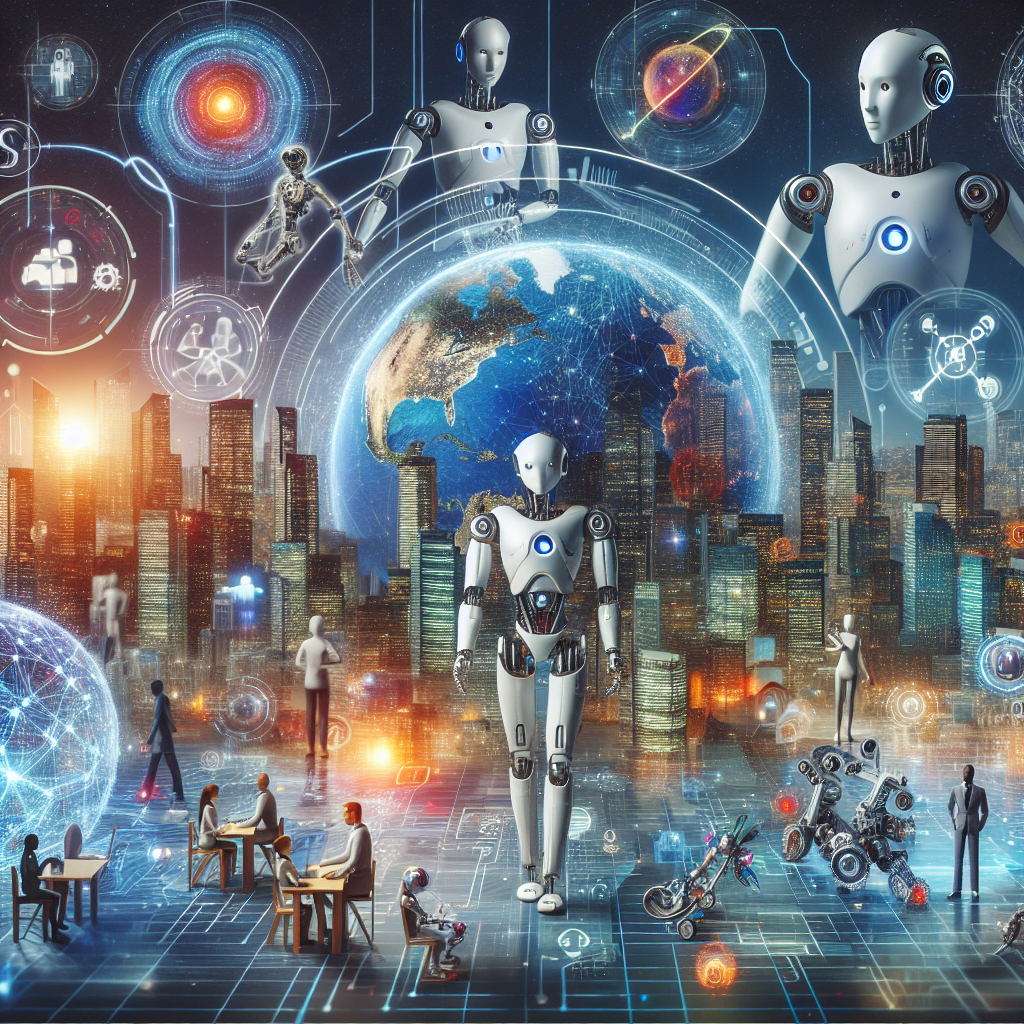Preparing for the Future: How AGI Will Shape Our World
Artificial General Intelligence (AGI) is a concept that has been discussed and debated for decades. AGI refers to a type of artificial intelligence that is capable of understanding and learning any intellectual task that a human being can. This level of intelligence goes beyond the narrow applications of artificial intelligence (AI) that we see in our everyday lives, such as voice assistants and recommendation algorithms. AGI has the potential to revolutionize the way we live, work, and interact with technology in the future.
As we move closer to achieving AGI, there are many questions and concerns that arise about how it will impact our world. From job displacement to ethical considerations, the implications of AGI are vast and complex. In this article, we will explore the ways in which AGI will shape our world and how we can prepare for this technological revolution.
Understanding AGI
Before we delve into the potential impact of AGI, it is important to have a basic understanding of what AGI is and how it differs from other types of artificial intelligence. AGI is often referred to as the holy grail of AI because it represents the ultimate goal of creating machines that can think and learn like humans.
Unlike narrow AI, which is designed for specific tasks such as image recognition or language translation, AGI is intended to have general cognitive abilities that can be applied to a wide range of tasks. This level of intelligence requires a deep understanding of human cognition, including the ability to reason, learn, and adapt to new situations.
The development of AGI is still in its early stages, but researchers and technologists are making rapid progress in this field. Companies like OpenAI and DeepMind are at the forefront of AGI research, working to create intelligent systems that can perform a wide range of tasks with human-like proficiency.
Implications of AGI
The potential implications of AGI are vast and far-reaching, impacting nearly every aspect of our lives. From healthcare to transportation, AGI has the potential to revolutionize industries and create new opportunities for innovation. However, with these opportunities also come challenges that must be addressed in order to ensure a smooth transition to a world dominated by intelligent machines.
One of the most pressing concerns surrounding AGI is the impact it will have on the job market. As machines become more intelligent and capable of performing a wide range of tasks, many jobs that are currently performed by humans may become obsolete. This could lead to widespread job displacement and economic disruption, particularly in industries that rely heavily on manual labor or repetitive tasks.
Another concern is the ethical implications of AGI. As machines become more intelligent and autonomous, questions arise about how we should regulate their behavior and ensure that they act in a way that aligns with human values and ethics. Issues such as bias in algorithms, privacy concerns, and the potential for misuse of AI pose significant challenges that must be addressed as AGI becomes more prevalent in our society.
Preparing for the Future
In order to prepare for the impact of AGI on our world, it is important to take proactive steps to address the challenges and opportunities that this technology presents. This includes investing in education and training programs that will help workers transition to new roles and industries, as well as developing policies and regulations that will ensure the safe and ethical deployment of AGI.
One key aspect of preparing for the future of AGI is to foster collaboration between industry, academia, and government to ensure that the development of this technology is done in a responsible and transparent manner. By working together, we can address the challenges of AGI and harness its potential to create a better future for all.
FAQs
Q: Will AGI replace human workers in the future?
A: It is possible that AGI could lead to job displacement in certain industries, particularly those that rely on repetitive tasks or manual labor. However, AGI also has the potential to create new opportunities for innovation and growth in other industries, leading to the creation of new jobs and economic opportunities.
Q: What are the ethical considerations of AGI?
A: The ethical considerations of AGI are vast and complex, ranging from issues of bias in algorithms to concerns about privacy and security. It is important to develop policies and regulations that address these concerns and ensure that AGI is deployed in a way that aligns with human values and ethics.
Q: How can we ensure the safe deployment of AGI?
A: Ensuring the safe deployment of AGI requires collaboration between industry, academia, and government to develop standards and best practices for the development and deployment of intelligent systems. By working together, we can address the challenges of AGI and create a future in which this technology benefits society as a whole.
In conclusion, AGI has the potential to revolutionize the way we live, work, and interact with technology in the future. By understanding the implications of AGI and taking proactive steps to address the challenges and opportunities it presents, we can prepare for a future in which intelligent machines play a central role in shaping our world.

